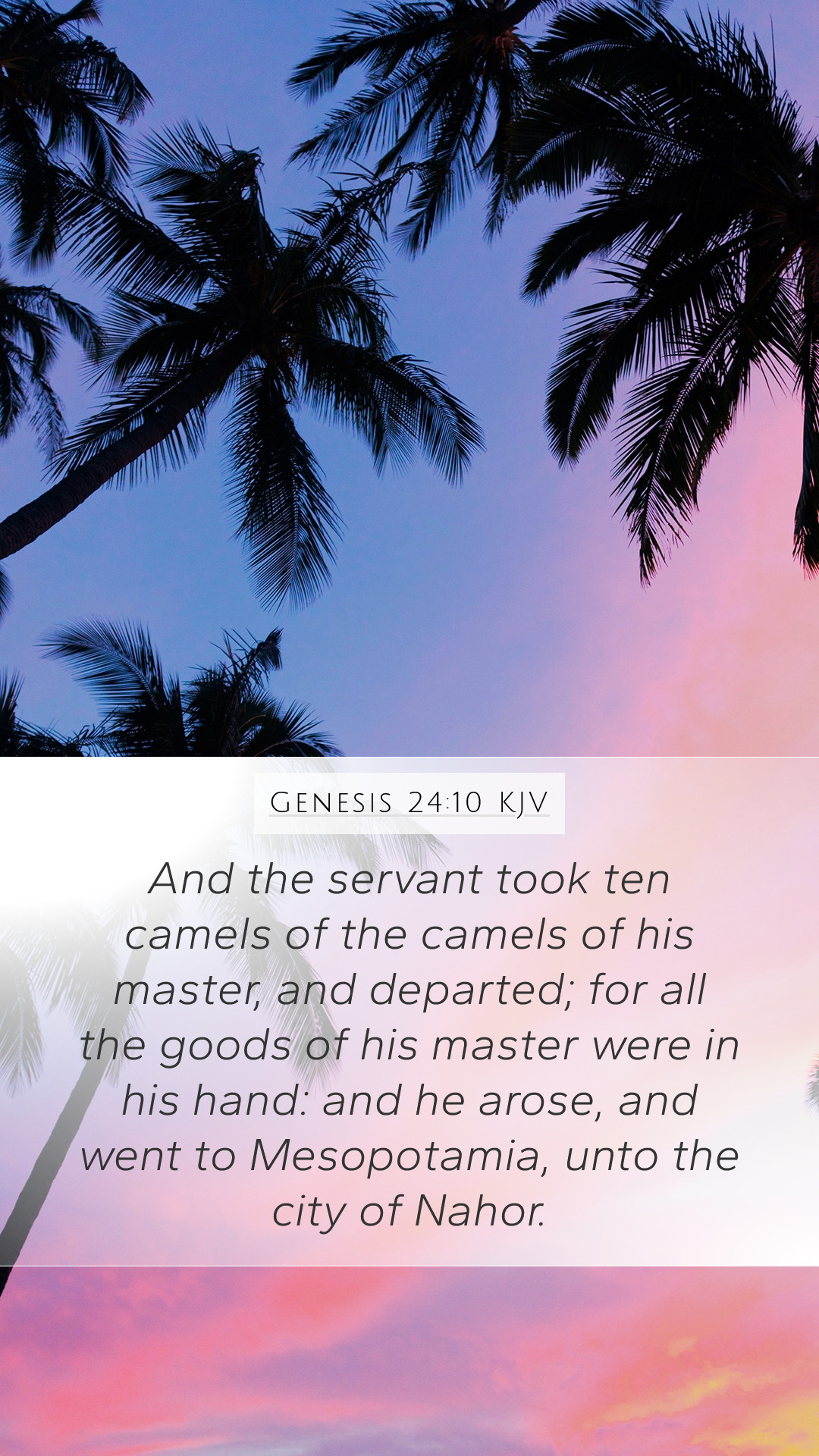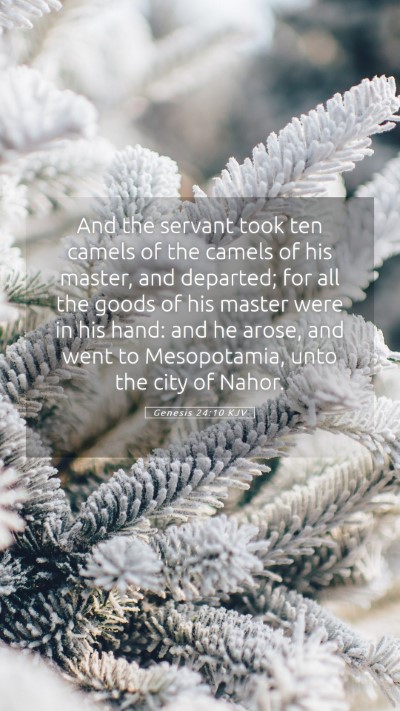Understanding Genesis 24:10
The verse Genesis 24:10 states: "And the servant took ten camels of the camels of his master, and departed; for all the goods of his master were in his hand: and he arose, and went to Mesopotamia, unto the city of Nahor." This profound verse marks a pivotal moment in the narrative of the patriarch Abraham, emphasizing themes of obedience, provision, and divine guidance.
Verse Context
This scripture takes place in the context of Abraham's desire to find a suitable wife for his son Isaac. The servant is tasked with a significant mission that reveals his loyalty and the trust placed in him by Abraham. The journey to Mesopotamia signifies not just a physical journey but a journey filled with spiritual implications.
Commentary Insights
- Matthew Henry: Matthew Henry emphasizes the servant's mission as an act of faith. He points out that the servant did not embark on this journey lightly; he carried the wealth of his master, showcasing confidence in God's provision and direction. This journey symbolizes a search for spiritual companionship, reflecting the seriousness of marital commitments.
- Albert Barnes: Albert Barnes highlights that the number of camels indicates wealth and the servant’s readiness to fulfill his master’s request fully. Barnes notes how this detail illustrates the richness of Abraham’s household and the importance of finding a wife that not only meets physical needs but also aligns spiritually with Isaac.
- Adam Clarke: Clarke discusses the geographical and cultural significance of Mesopotamia and the city of Nahor. He brings attention to the historical context of the region, which underscores the importance of tradition in selecting a bride. Clarke suggests that the servant’s venture is a reflection of obedience to Abraham’s wishes and God’s providence leading the way through the selection process.
Major Themes
The exploration of Genesis 24:10 reveals several central themes:
- Faithfulness: The servant exemplifies unwavering faithfulness both to his master and to the task at hand, mirroring God's faithfulness to His people.
- Divine Guidance: The journey undertaken signifies reliance on divine guidance, an essential aspect when interpreting pivotal life decisions, particularly in choosing a life partner.
- Preparation: The mention of ten camels reflects abundant preparedness, reinforcing the biblical principle that God equips His servants for the tasks He sets before them.
- The Importance of Community: Choosing a spouse from one’s own community highlights the significance of shared values and beliefs, a recurring theme throughout scripture.
Bible Study Tools
For those engaged in deeper Bible study insights regarding Genesis 24:10, consider utilizing the following Bible study tools:
- Study Bibles with commentary sections
- Bible dictionaries for historical context
- Online Bible study platforms for interactive learning
Cross References
Genesis 24:10 relates to several important passages that enhance its understanding:
- Genesis 12:4-5: Abraham’s journey to Canaan establishes a pattern of faith-filled obedience.
- Genesis 2:24: The foundation of marital relationships, underscoring the need for a suitable partner.
- Proverbs 18:22: Highlights that finding a good spouse is a favor from the Lord.
Application in Daily Life
In applying the insights from Genesis 24:10, we can reflect on the significance of seeking God's will in our own commitments:
- The importance of aligning with God’s purpose in our relationships.
- Understanding the value of preparation and responsiveness in fulfilling responsibilities.
- Emphasizing the communal aspect of decisions, particularly in relationships.
Conclusion
In summary, Genesis 24:10 offers rich insights into the attributes of faithfulness and reliance on divine guidance. By exploring the meanings derived from public domain commentaries, believers are equipped with a greater understanding of how scripture informs daily life and relationships. Engaging with this verse in Bible study groups or through online Bible study resources can further deepen one’s quest for knowledge and application of God's teachings.


